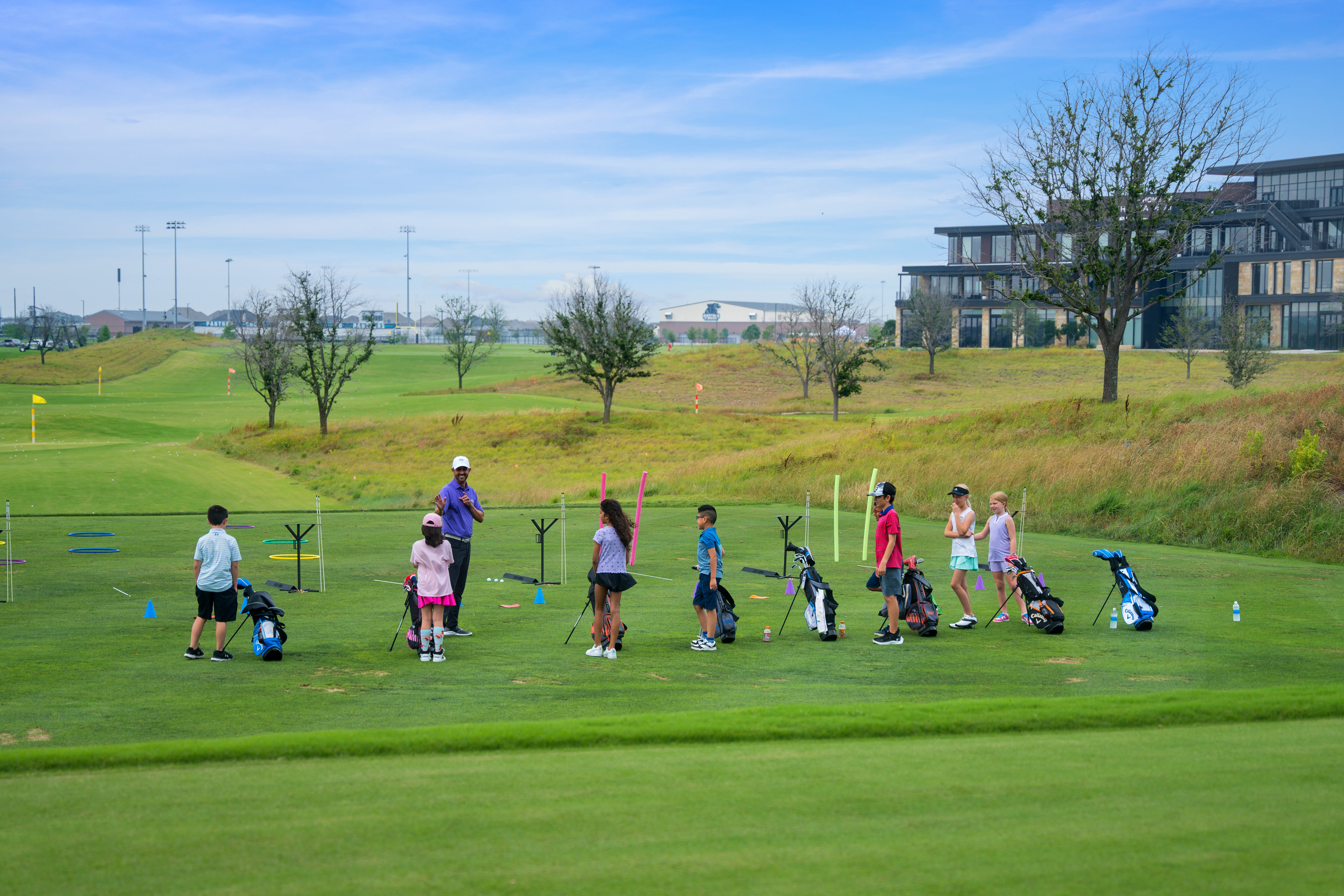Get into the Game with Learn to Play
Overview
- Ages: Boys 9-12 and Girls 8-11 (Please note: Ages are guidelines, not restrictions)
- Primary Focus: Continue developing fundamental movement skills while introducing fundamental golf skills.
- Competition Level: Encourage fun competitions at club, league, or junior tour levels. Focus on skill progression rather than competition results.

Skills and Development
- Athletic Skills: Enhance agility, footwork, dynamic balance, complex coordination, speed of coordination, strength, and flexibility.
- Technical Skills: Progress further in putting, chipping, and full swing. Begin practicing bunker shots, green reading, and pitching.
- Psychological Development: Foster a love for the sport, strong concentration, problem-solving skills, confidence, good decision-making, fairness, and responsibility.
- Social Development: Learn to compete with others, understand golf values, and balance independence and teamwork. Develop self-awareness.

Play Guidelines
- Practice: Implement randomized practice sessions of 30-60 minutes. Encourage fun, group-oriented practice with peers. Include on-course practice. Limit total practice to 1-5 hours per week.
- Equipment and Safety: Minimum equipment should include a putter, wedge, 7 iron, 9 iron, hybrid, and driver. Select club specifications based on height and weight, not age.
- Where to play:
- Suitable venues include 1,000-yard par 3 courses and 9-hole games initially, progressing to 18 holes.
- Male: 18 holes, up to 5,500 yards.
- Female: 18 holes, up to 4,750 yards. (These are maximum recommendations.)

Explore Additional Stages:
